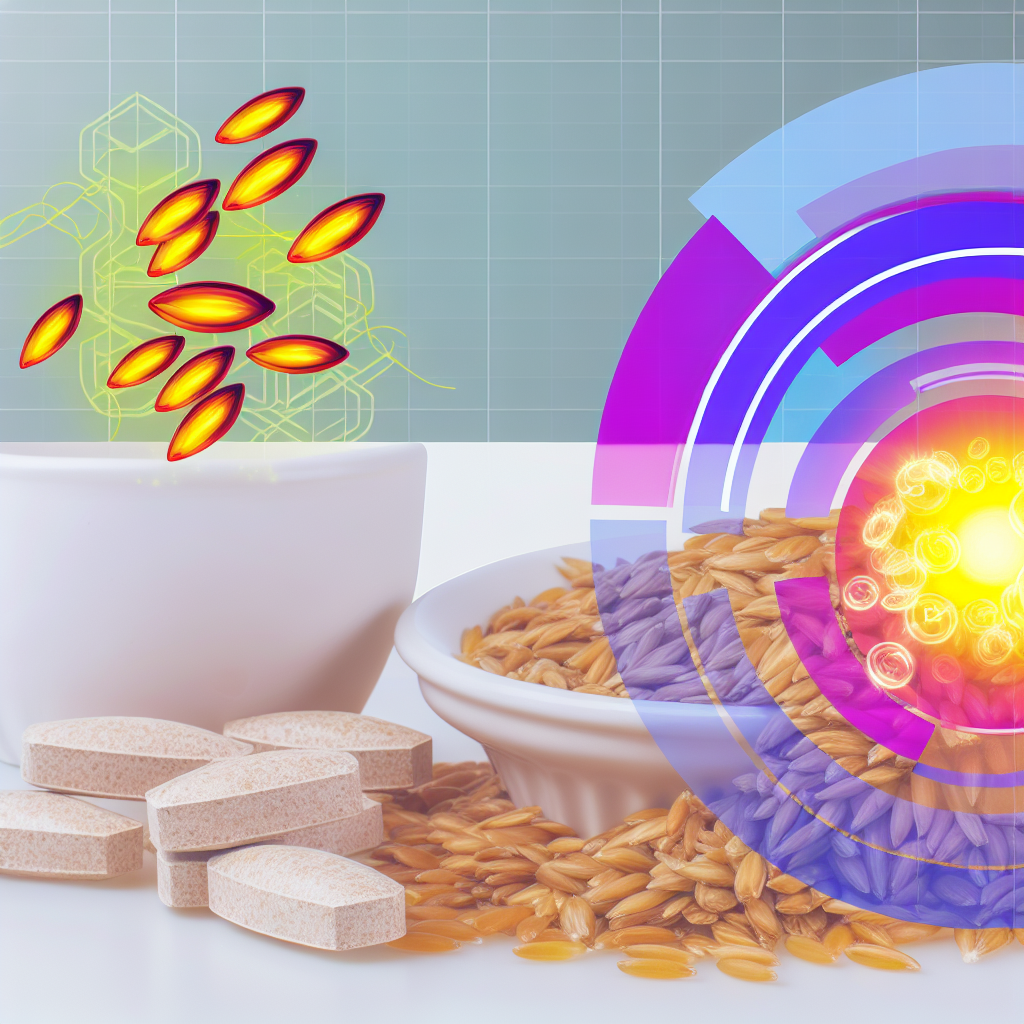Vitamin B1, also known as thiamine, is a vital nutrient your body depends on to function efficiently. It’s a key player in converting carbohydrates into energy and in maintaining healthy brain and nerve function. Despite its importance, this essential B vitamin often flies under the radar, leading many people to overlook its role in their overall health.
Since thiamine is water-soluble and flushed out regularly, your body doesn’t store it—and that means you need to consume it consistently through food or supplements. In this article, we’ll explore the benefits of Vitamin B1, how to spot symptoms of deficiency, and the best ways to include more thiamine-rich foods in your diet.
What is Vitamin B1 (Thiamine)?
Think of Vitamin B1 as the engine behind your body’s energy production. Every time you eat carbohydrates—whether it’s a bowl of pasta or a slice of bread—thiamine steps in to turn those carbs into fuel your cells can use. But that’s only the beginning. This nutrient is also crucial for your nervous system, helping nerve signals travel efficiently between the brain and body.
If you’re not getting enough Vitamin B1, your metabolism tends to slow down, and your nerves struggle to communicate properly. Over time, this can lead to alarming symptoms and serious health risks—something we’ll examine in greater detail below.
Health Benefits of Vitamin B1
Vitamin B1 isn’t just helpful—it’s essential for your body’s daily operations. Let’s look at some of its major benefits:
Boosts Energy Levels
Ever experience that midday crash that makes you reach for coffee or snacks? Thiamine prevents those energy slumps by helping your body efficiently convert carbs into a steady supply of fuel. Without it, you might feel burned out before your day even begins.
Supports Brain and Nervous System Function
Your brain depends on thiamine to stay sharp. Adequate Vitamin B1 levels improve memory, focus, and cognitive function. When deficient, tasks that used to feel easy can suddenly seem overwhelming or harder to manage.
Maintains Heart Health
Thiamine plays a key role in keeping your heart strong and steady. It ensures proper function and helps reduce the risk of complications related to cardiac health. For individuals with heart conditions, increasing thiamine intake has been shown to improve overall function.
Reduces Stress
Stress has become almost unavoidable, but thiamine can support a balanced response to it. Known for its calming effects on the nervous system, this nutrient helps prevent the kind of tension that can spiral into fatigue and burnout.
Recognizing Symptoms of Vitamin B1 Deficiency
Vitamin B1 deficiencies often start subtly, but they can escalate quickly if neglected. Here’s what to look for:
Early Signs of Deficiency
Do you feel tired all the time, even after getting enough sleep? Are you struggling to focus or find yourself unusually irritable? These are common signs of low thiamine levels. While not immediately dangerous, these symptoms shouldn’t be ignored.
Serious Risks of Deficiency
Severe thiamine deficiency can lead to dangerous conditions, including:
- Beriberi: Impacts the heart and muscles, leading to weakness, edema, and shortness of breath.
- Wernicke-Korsakoff Syndrome: A neurological disorder affecting memory, coordination, and cognition, often linked to chronic alcohol use.
Who’s Most at Risk?
Certain groups are more vulnerable to Vitamin B1 deficiency, including:
- Heavy alcohol consumers
- Individuals with metabolic or absorption disorders
- Pregnant and breastfeeding women with inadequate diets
Top Food Sources of Vitamin B1
Getting enough thiamine doesn’t have to be complicated—it’s found in a variety of naturally occurring and fortified foods.
Best Plant-Based Options
If you lean toward plant-based eating, you’ll find thiamine in foods like:
- Whole grains: Brown rice, quinoa, and oats
- Legumes: Lentils, black beans, and chickpeas
- Nuts and seeds: Sunflower seeds and almonds
Best Animal-Based Sources
For meat eaters, thiamine is abundant in:
- Pork: One of the richest natural sources of Vitamin B1
- Fish: Trout, salmon, and mackerel
- Eggs: A versatile option for retaining Vitamin B1
Fortified Foods
Many processed foods like cereals and breads are fortified with Vitamin B1, making it easy to add thiamine to your diet without extra effort.
How to Include More Vitamin B1 in Your Diet
Getting more Vitamin B1 isn’t a challenge—you can start with small, manageable changes.
Simple Food Swaps
Trade white rice for brown rice, sprinkle sunflower seeds on your salads, or add lentils to your soups for added fiber and nutrients. These simple choices can make a big difference.
Try New Recipes
Need inspiration? Stir-fried pork with veggies and brown rice is a flavorful option. For breakfast, eggs paired with chickpeas and a side of avocado will keep you energized all morning.
Consider Supplementing
If you're struggling to meet your thiamine needs through diet alone, it might be worth exploring Vitamin B1 supplements. Always consult with a healthcare provider before starting any supplementation regimen.
Final Thoughts: Why You Should Prioritize Vitamin B1
Vitamin B1 is a small nutrient with a huge impact. From boosting your energy to supporting your brain, heart, and stress response, thiamine is essential for lifelong wellness. The good news? There are plenty of ways to incorporate it into your daily routine, whether through foods like whole grains, pork, legumes, or fortified products.
Feeling better starts with smart nutritional choices, and prioritizing thiamine is an investment in your vitality. Take a moment today to consider how you can include more Vitamin B1-rich foods in your diet—you’ll thank yourself for it tomorrow.
